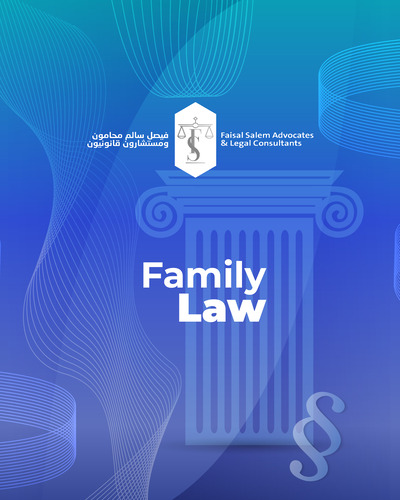
We, Mohamed bin Zayed Al Nahyan, President of the United Arab Emirates;
Having perused:
The Constitution;
Federal Law No. 1/1972 on the Competencies of Ministries and the Powers of Ministers, as amended;
Federal Law No. 5/1985 Promulgating the Civil Transactions Law, as amended;
Federal Law No. 11/1992 Promulgating the Civil Procedures Law, as amended;
Federal Law No. 21/1997 Determining the Dowry in the Marriage Contract and its Expenses;
Federal Law No. 28/2005 on Personal Status, as amended;
Federal Law No. 13/2020 on Public Health;
Federal Decree-Law No. 31/2021 Promulgating the Crimes and Penalties Law, as amended;
Federal Decree-Law No. 10/2022 Regulating the Registration of Births and Deaths;
Federal Decree-Law No. 20/2022 Regulating the Notary Public Profession;
Federal Decree-Law No. 35/2022 Promulgating the Law on Evidence in Civil and Commercial Transactions;
Federal Decree-Law No. 32/2022 on the Federal Judicial Authority;
Federal Decree-Law No. 33/2022 on the Federal Supreme Court; and
Based on the proposal of the Minister of Justice, and the approval of the Cabinet;
Have issued the following Decree-Law:
Chapter 1 – Preliminary Provisions
Article 1 – Scope of Application of the Decree-Law
- The provisions of this Decree-Law shall apply to non-Muslims who are citizens of the United Arab Emirates, and to non-Muslim foreigners residing in the State, unless any of them insists on the application of their law, with regard to the articles of marriage, divorce, inheritance, wills and proof of parentage, without prejudice to the provisions of Articles (12), (13), (15), (16) and (17) of the abovementioned Federal Law No. (5) of 1985.
- Those addressed by the provisions of this Decree-Law, who are specified in paragraph (1) of this Article, may agree to apply other legislation regulating family or personal status in force in the State instead of applying the provisions of this Decree-Law.
- The provisions of this Decree-Law shall apply to all incidents that occur after the entry into force of its provisions.
Article 2 – Calculation of Periods
The Gregorian calendar shall be used in calculating the periods stipulated in this Decree-Law.
Article 3 – Exception from Referral to Family Guidance
Divorce cases filed pursuant to the provisions of this Decree-Law shall be excluded from referral to family guidance committees, and shall be referred directly to the court to issue a judgment at the first session.
Article 4 – Equality between Men and Women in Rights and Duties
In applying the provisions of this Decree Law, equality between women and men in rights and duties shall be taken into account, and this shall be particularly applied in the following matters:
- Testimony: Equality in testimony before the court; the testimony of a woman before the court shall be as valid as the testimony of a man without discrimination;
- Inheritance: Equality between men and women in the distribution of inheritance according to the provisions of this Decree-Law;
- Right to seek Divorce: Either husband or wife may unilaterally seek divorce from the court without prejudice to their rights related to divorce; and
- Joint Custody: Women and men are equal in the right to joint custody of a child until he/she reaches the age of eighteen (18) years old, after which the child shall have the freedom of choice.
Chapter 2 – Provisions of Civil Marriage
Article 5 – Civil Marriage
The following conditions must be met by a civil marriage contract:
- Both husband and wife must have attained at least twenty-one (21) Gregorian years of age. The age shall be proven by any official document issued by the country to which each of them belongs by nationality;
- Marriage may not be concluded with brothers, sons, grandchildren, paternal or maternal uncles or aunts, and any other cases specified by the Executive Regulations;
- Both spouses must explicitly express their consent to the marriage before the authentication judge, and there is nothing legally precluding reliance on their consent;
- The spouses must sign the disclosure form; and
- Any other conditions set by the Executive Regulations of this Decree-Law.
Article 6 – Civil Marriage Contract Procedures and Authentication
- Marriage may be concluded before the authentication judge at the competent court by submitting an application according to the form prepared for this purpose, taking into account the other conditions and procedures stipulated in this Decree-Law and its Executive Regulations.
- Marriage takes place through the spouses completing the form prepared therefor before the authentication judge, and the spouses may agree on the conditions of the contract, and the rights of the husband and wife during the marriage period and the post-divorce rights, in particular joint custody of children, as stipulated in such contract, shall be relied upon between them;
- The marriage contract form shall include a disclosure by both spouses of the existence of any other prior marital relationship of either of them, indicating the date of divorce, if any, and the wife’s acknowledgment that there is no existing marital relationship, and the husband shall submit this acknowledgment in the event that his legislation does not allow polygamy. In all cases the husband shall disclose any existing marital relationship before the authentication judge.
- The contract shall include proof of the consent of each of them, verbally or in writing.
- The Executive Regulations of this Decree-Law shall set the approved bilingual contract form for civil marriage.
- After verifying that all conditions for a civil marriage contract are met, and after completing the procedures stipulated in this article, the authentication judge shall legalize the marriage contract, and it shall be entered in the register prepared for this purpose.




